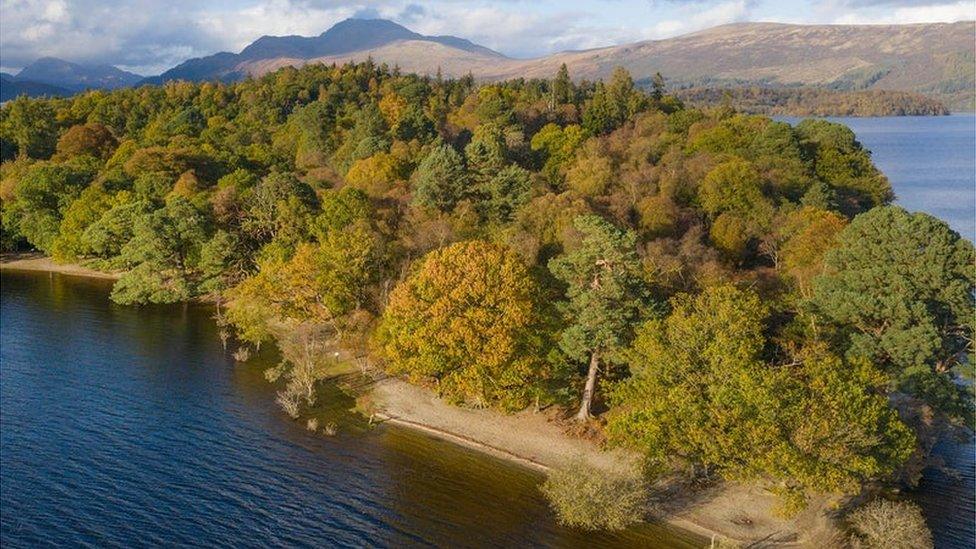Horse Island: Shopping for a private island in a pandemic
- Published
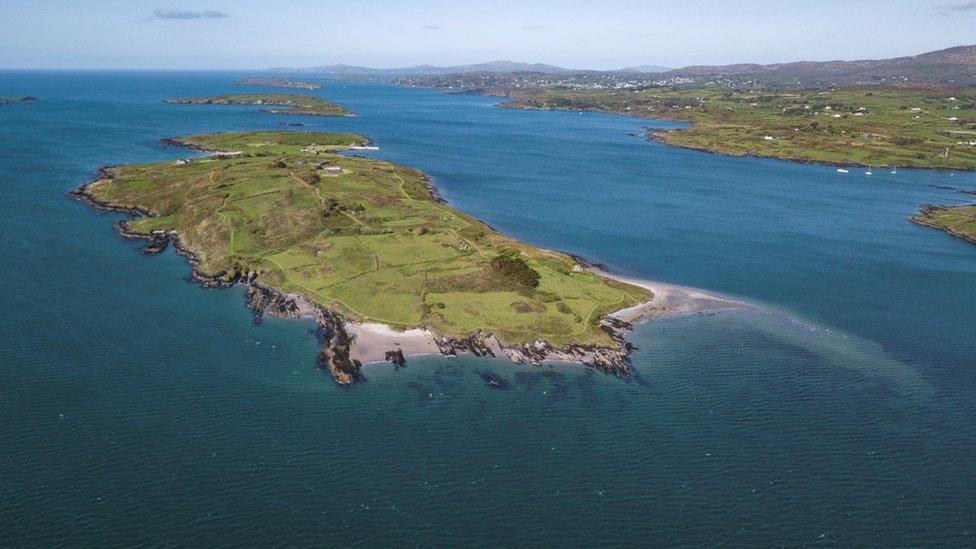
Horse Island, which lies just off the County Cork coast, was sold during lockdown
Social distancing during a pandemic is not so much of a problem if you have your own private island to escape to.
The sale of an island off Ireland's southern coast attracted interest "from all corners of the globe," according to the agents who helped seal the deal.
Horse Island, which had an asking price of €5.5m (just over £5m), has been snapped up by a mystery buyer.
The selling agents were contacted by the buyer's representatives just as Ireland's Covid-19 lockdown began.
The secluded retreat on the edge of the Atlantic Ocean has all the potential to provide a self-sufficient shelter for the super rich during a pandemic.
The 157-acre island off the County Cork coast comes complete with its own electricity grid, a water treatment system, a private pier and a helicopter pad.
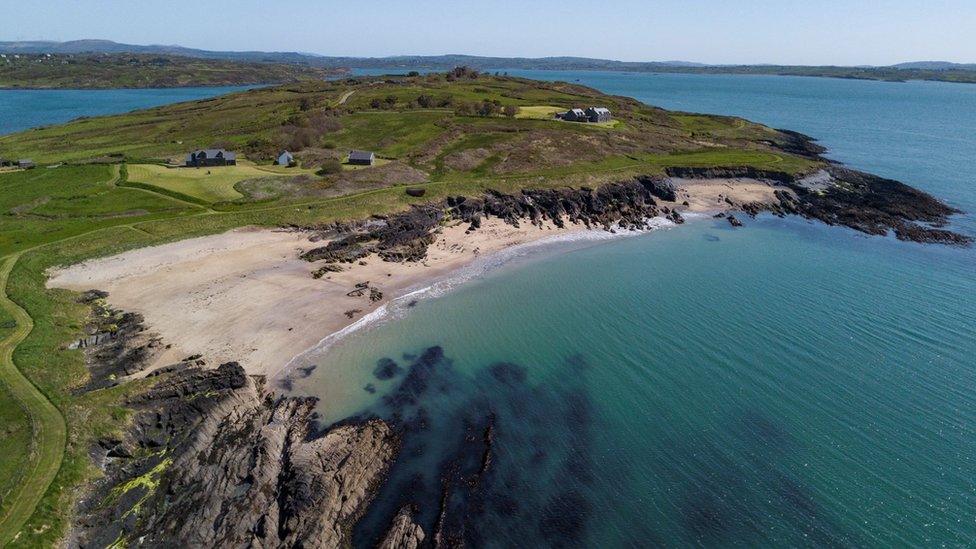
Accommodation on Horse Island consists of a six-bedroom house and several guest houses
The buyer was not alone in shopping for a private island during the pandemic.
The coronavirus outbreak appears to have sparked international interest in this very niche market, according to German businessman Farhad Vladi who has been in the trade for more than 50 years
"Right now, there is a strong demand for self-sufficient private islands," he told BBC News NI.
Mr Vladi is the founder and president of Vladi Private Islands, which has sold more than 3,500 private islands around the world since he set up the firm in 1969.
"People are looking for the opportunity to stay for longer on their island, especially amidst a pandemic, so being self-sufficient would be a must," he said.
"As the owner of your own island, you are in control of what you see and there is no risk of the virus reaching the island. That seems to be the reason behind the new demand for such islands."
'Ultra-high-net-worth buyer'
Horse Island lies in Roaringwater Bay, Ireland's southernmost bay, but is just a short distance from the Cork coast.
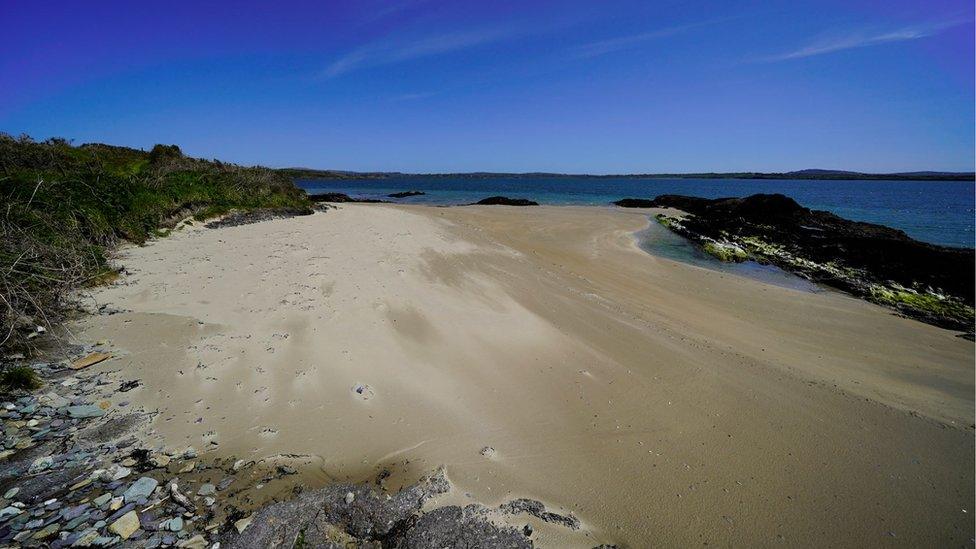
Horse Island's private beaches look out over Roaringwater Bay
The new owner may have no neighbours to meet when he moves in, but has seven houses to choose from as well as a large wine cellar to stock up on supplies.
Keeping fit in splendid isolation won't be a problem either as there are three beaches, tennis courts, a gym and a games house.
"Horse Island has been fully re-developed with self-sufficiency in mind," the vendors' agents said, describing it as "entirely self-contained".
The sale was negotiated by phone and email rather than face-to-face during the lockdown, according to the joint selling agents, Colliers International.
In fact, it is believed the buyer made the purchase without even setting foot on Horse Island.
His identity has not been made public, but he was described by the selling agents as an "ultra-high-net-worth European buyer".
'Ideal Ireland'
The man began island shopping in December 2019, instructing a London-based real estate broker to find a suitable location.
Horse Island had been on market in 2018 with an asking price of €6.75m (£6.1m) but it was reduced to €5.5m in February this year.
The sale sparked enquiries from the USA, Asia, Europe and the UK, but it came down to two bidders.
Callum Bain, a senior surveyor at Colliers International, helped secure the sale on behalf of the vendors.
He told BBC News NI the successful bidder first made enquiries about Horse Island just as lockdown began.
Asked if the pandemic influenced the sale, Mr Bain said he did not know the buyer so could not comment on the reasons for the purchase, other than a public statement from the buyer's agent which said their client intended to use the island as a "private residence".
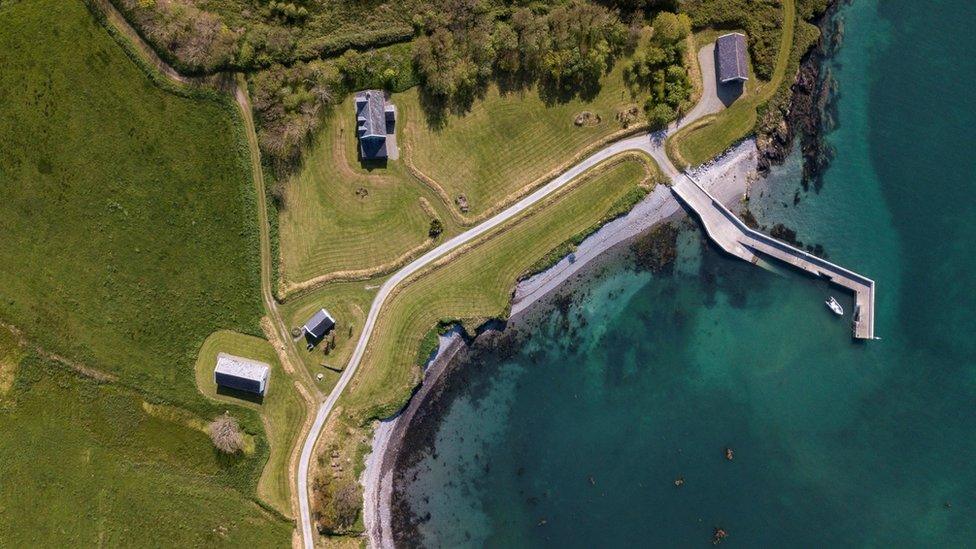
Horse Island has its own harbour and a 150ft (45m) pier
However, Mr Bain said in general terms he believed Ireland was ideally placed for those seeking to shield from the pandemic.
"If you want to isolate, or have a requirement to isolate, I think Ireland is in a brilliant position," he said.
"We're on the western border of Europe but we have good connections, if we so want them."
Mr Bain has conducted private island sales before, but said this kind of transaction is relatively rare as they don't come on the market very often.
"People like to hold on to them," he said.
Mr Vladi meanwhile conducted his first sale in 1971 and since then he has sold islands ranging from an eyewatering $35m (£28m) down to a more modest $50,000 (£40,000).
He said for an island to be considered self-sufficient it needs to have a good agricultural potential, allowing owners to grow their own vegetables and keep animals on site.
Although sales enquiries have been strong at his firm during the pandemic, actual transactions have been hit by international lockdowns and quarantine rules.
Mr Vladi explained that "due to the travel restrictions worldwide, many people cannot inspect these islands before they decide to buy".
However, he believes it is only a matter of time before restrictions ease and viewings begin again.
- Published11 July 2020
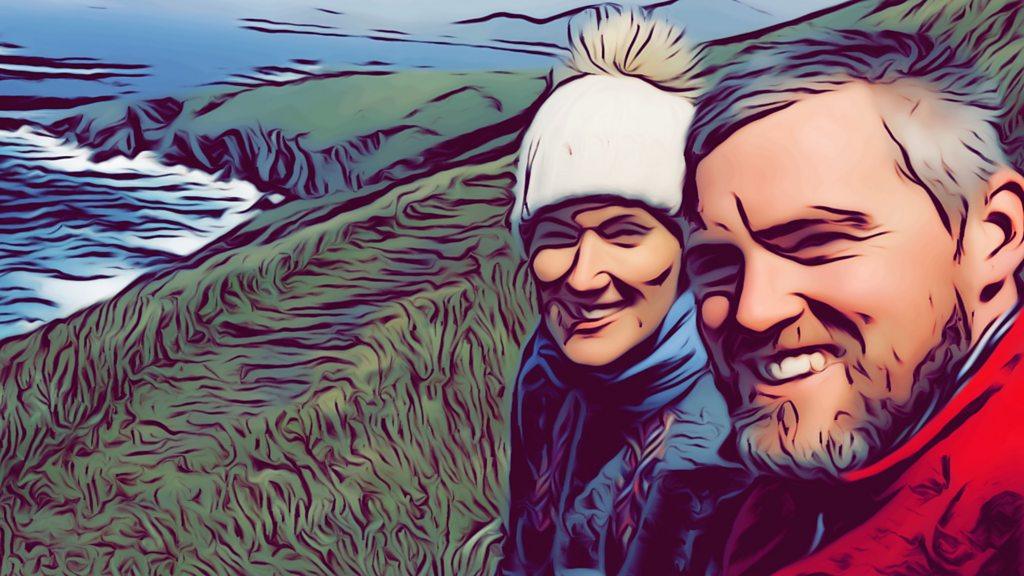
- Published9 July 2020
